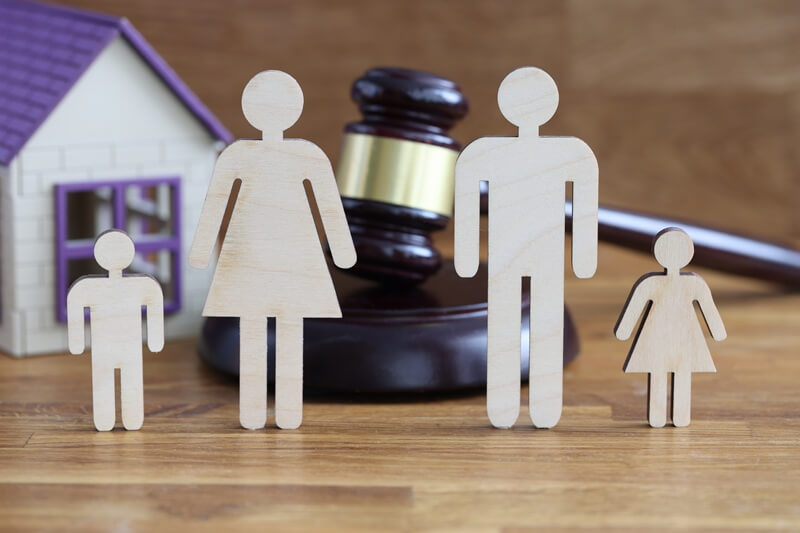What Can You Do After A Car Accident In Virginia?
What Can You Do After A Car Accident In Virginia?
A car accident can leave you with more than physical injuries, as it may also bring legal and financial stress. What you do in the moments and days afterward can significantly impact your ability to secure compensation and move forward.
This guide helps you take control of your situation. It explains what to do after a car accident in Virginia, from taking immediate action at the scene to pursuing compensation for injuries and damages. You can obtain clear insights and understand how a personal injury lawyer can help.

Key Points About Car Accident Laws In Virginia
Car accident laws define how victims can recover damages and pursue justice. They provide a framework that every driver should understand. Learning these rules can help you protect your rights and avoid costly missteps after an accident.
Fault-Based System
Virginia operates under a fault-based system, which means the driver who caused the accident is liable for damages. Their insurance typically pays for medical bills, vehicle repairs, and other losses. However, proving fault requires solid evidence, such as police reports, photos, or witness testimony.
Contributory Negligence Rule
Virginia enforces one of the strictest negligence standards in the country. If the victim contributes to the accident or injury in any way, even slightly, they cannot recover compensation. Negligence laws make proving the other party’s sole responsibility critical.
Statute Of Limitations
Timing plays a critical role in filing a claim. Generally, the law enforces a two-year deadline for personal injury claims and a five-year deadline for property damage. These strict timelines require victims to act promptly to preserve their legal rights. Delaying too long can eliminate your chance to seek compensation.
Understanding these legal principles can significantly impact the success of your claim. However, knowing the laws is only part of the equation. What you do immediately after an accident is critical in building a strong case.
Immediate Actions To Take At The Scene
The moments following a car accident can be chaotic, but your actions hold significant importance. Taking the proper steps keeps you safe and preserves valuable evidence for your case. Here’s what you should do immediately after an accident.
Ensure Your & Others’ Safety
Check yourself and others for injuries before taking further action. If your vehicle is in a hazardous position, move it to a safe spot off the road. Ensuring the safety of all involved parties minimizes the risk of secondary accidents and additional harm.
Call 911 Or Local Emergency Services
Virginia’s motor vehicle policies require drivers to report accidents involving injury, death, or significant property damage. Calling 911 ensures that law enforcement arrives to document the scene. A police report from this call can serve as key evidence in insurance claims or legal proceedings.
Exchange Information
Share your contact and insurance details with the other drivers involved in the accident. Gather the same information from them, including license plate numbers and insurance policy details. This exchange is necessary for filing claims and determining liability.
Document The Scene
Use your phone to take photos or videos of the accident site, vehicle damage, injuries, road conditions, and traffic signs. Detailed visual evidence can help establish the cause of the accident and counter potential disputes about liability.
Identify Witnesses
If you can, speak to bystanders who saw the accident and obtain their contact details, including names and phone numbers. Witnesses can offer an objective account of what happened, strengthening your claim if the fault is disputed. Record their perspective while the details are fresh, as memories can fade.
Following these steps establishes the foundation for a successful claim. Once you’ve addressed immediate concerns, it’s essential to shift your focus to potential injuries.
Importance Of Seeking Medical Attention
Seeking medical attention after a car accident is vital, even if you initially feel unharmed. Many injuries, such as concussions or whiplash, may not show symptoms immediately but can worsen without prompt treatment. A medical evaluation helps detect these hidden injuries early, giving you the best chance for recovery.
Keep detailed records of the medical visits, prescriptions, and expenses. These documents are crucial for proving the extent of your damages and securing compensation. Once your medical concerns are addressed and you’re reasonably capable of handling your case, take the necessary legal steps to seek compensation.
How To Pursue Compensation For Injuries & Damages
Securing compensation after a car accident requires understanding your rights and the steps needed to build a strong case. Virginia’s contributory negligence rule and fault-based system make it vital to approach the process with care. With the proper approach, you can improve your chances of recovering the damages.
Notify Your Insurance Company
Report the incident to your insurer and provide all necessary details, including the accident’s date, location, and supporting evidence. Avoid assuming fault when speaking with your insurance company or the other driver’s insurer, as these statements may be used against you. Consulting legal counsel before engaging in detailed discussions ensures your rights remain protected.
Understand Personal Injury Claims
Car accidents are a type of negligence case, which is a common personal injury claim in Virginia. Negligence happens when one driver’s carelessness harms another. To prove it, you must show that the at-fault driver breached their duty of care, directly causing your injuries. Personal injury liability makes gathering strong evidence critical.
Calculate Your Eligible Compensation
Compensation in car accident claims includes two primary types. Economic damages cover measurable costs like medical bills, lost wages, and vehicle repairs. Non-economic damages compensate for intangible harm, such as pain or diminished quality of life. To clearly show the accident’s financial and emotional toll, keep thorough documentation of expenses, treatment records, and personal impacts.
Decide Between Settlement Or Court
Resolving your claim involves negotiating with the at-fault party’s insurer. While settlements may be quicker and less stressful, they aren’t always fair. You may need to pursue a lawsuit if negotiations fail to reach a reasonable offer. A skilled personal injury attorney can help you assess your options and advocate for your best interests in either scenario.
Following these strategies helps ensure your claim is well-prepared. For your case to take better shape, securing the right legal support is vital. Whether you’re dealing with injuries or vehicle damage, an experienced lawyer’s assistance proves invaluable.
The Irving Law Firm Offers Solid Legal Support

Dealing with the aftermath of a car accident can leave you feeling devastated, especially with uncooperative insurance companies or complex legal issues. The Irving Law Firm helps Virginia car accident victims navigate the claims process effectively. With years of experience in personal injury cases, we protect your rights every step of the way.
Our dedicated team gathers evidence, negotiates with insurance companies, and builds a strong case to secure the compensation you deserve. Whether you’re seeking to cover medical bills, recover lost wages, or obtain compensation for emotional pain, we tailor our approach to your unique needs.
Our firm understands that not all cases settle quickly. We are ready to fight for you in court when insurers undervalue your claim or disputes arise. Our proven track record shows our dedication to achieving favorable outcomes for our clients. If you’re recovering from a car accident, let us handle the legal challenges so you can focus on healing.
Summary
Navigating a car accident requires understanding your rights and taking the essential steps to protect them. In such situations, it’s important to document the scene, seek medical attention, report the incident to authorities, and even pursue compensation for injuries. Clear evidence and prompt action help establish a strong claim.
When seeking compensation, effective legal representation can make a significant difference. At The Irving Law Firm, we guide you through the process, from insurance negotiations to courtroom advocacy. With our help, you can confidently approach the future, knowing your case is in capable hands.




